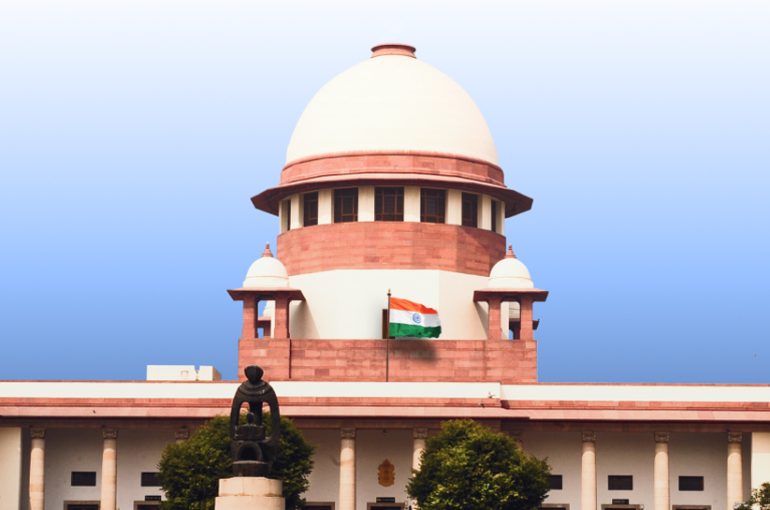BETWEEN INTIMACY AND ALLEGATION: THE SUPREME COURT ON QUASHING FIRs IN CASES OF PROMISE OF MARRIAGE

INTRODUCTION
The Supreme Court of India in the case of Surendra Khawse v. State of Madhya Pradesh &
Anr., {SLP(Crl.) No. 3361 of 2025}, delivered its Judgment on 22nd September 2025. The
Bench comprised Justice Sanjay Karol and Justice Nongmeikapam Kotiswar Singh. The
case examined the delicate intersection of consensual intimacy, allegations of rape on the
pretext of marriage and the inherent powers of the High Court under Section 528 of the
Bharatiya Nagrik Suraksha Sanhita, 2023 (BNSS), corresponding to Section 482 of the Code
of Criminal Procedure, 1973.
BRIEF FACTS
The Complainant, employed as a Computer Operator at the Suhagi Municipal Corporation,
became acquainted with the Appellant, an Assistant Revenue Inspector. Their professional
camaraderie evolved into personal intimacy. The Complainant, though married and mother to
a son, alleged that the Appellant persuaded her into physical relations on assurances of
marriage.
She claimed that on 15 March 2023, the Appellant forced intimacy at his residence and
continued such relations until April 2023. When later questioned about marriage, the
Appellant allegedly refused and suggested she marry someone else. Subsequently, an FIR
was filed under Sections 376 and 376(2)(n) IPC at Police Station Adhartaal, Jabalpur, on 7
August 2023.
The Appellant countered with multiple complaints—alleging harassment, threats and even an
incident where the complainant consumed poison at his residence. Administrative complaints
were filed with municipal and police authorities, leading to a show-cause notice against the
complainant threatening termination of her employment. The FIR was lodged thereafter,
raising suspicions of mala fide intent.
The High Court of Madhya Pradesh dismissed the Appellant’s petition under Section 528
BNSS (482 Cr.PC equivalent), holding that the allegations required trial-level evidence and
could not be quashed prematurely. The Appellant then approached the Supreme Court.
ISSUES OF LAW
1) Whether the FIR and charge sheet under Sections 376 and 376(2)(n) IPC could be
quashed in exercise of inherent powers under Section 528 BNSS.
2) Whether the timing of the FIR, coupled with antecedent complaints filed by the
appellant, indicated mala fide intent and misuse of the criminal process.
3) To what extent courts should scrutinize allegations of rape on pretext of marriage at
the stage of quashing.
ANALYSIS
The Court revisited the principles laid down in State of Haryana v. Bhajan Lal (1992 Supp
(1) SCC 335), reaffirming that criminal proceedings must be quashed when instituted with
ulterior motives or as a tool for vengeance. It also cited Mohd. Wajid v. State of U.P. (2023)
20 SCC 219, emphasizing the need to examine attendant circumstances beyond the FIR’s face
value.
Key factors influencing the Court’s reasoning included:
Delayed FIR: The complaint was filed four months after the alleged incident, notably after
the issuance of a show-cause notice against the complainant threatening her employment.
Antecedent Complaints: The Appellant had earlier lodged multiple complaints about
harassment, threats and false implication, suggesting a pre-existing conflict.
Possibility of Mala Fides: The Court noted that the FIR might have been a retaliatory step to
counter the employment proceedings and legal measures initiated by the appellant.
The Court underscored that while allegations of sexual assault are grave, they cannot be used
as instruments of vengeance. Applying Bhajan Lal’s guidelines, it held that continuation of
proceedings would amount to abuse of process.
CONCLUSION
The Supreme Court quashed the FIR and charge sheet, setting aside the Madhya Pradesh
High Court’s refusal to exercise inherent jurisdiction. The ruling reinforces judicial vigilance
in distinguishing between genuine grievances of sexual exploitation and instances where
criminal law is invoked with ulterior motives.
By balancing sensitivity towards allegations of sexual assault with safeguards against misuse
of law, the Court has reaffirmed that the ends of justice are paramount, and inherent powers
must be invoked to prevent abuse of the criminal process.
SARTHAK KALRA
Senior Legal Associate
The Indian Lawyer & Allied Services
Please log on to our YouTube channel, The Indian Lawyer Legal Tips, to learn about
various aspects of the law. Our latest video, titled
Legal Requirements for Indian Startups| Complete Q & A 2025 | Advocate Sushila Ram
Varma”





































Leave a Reply